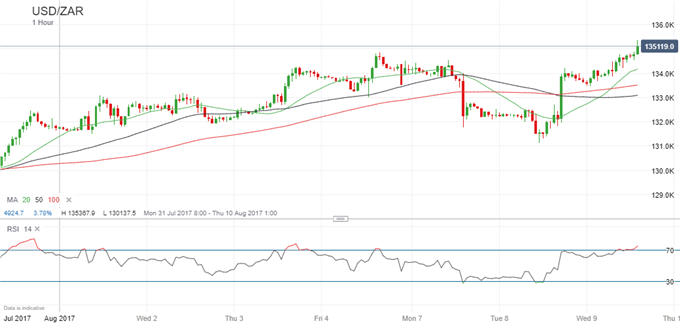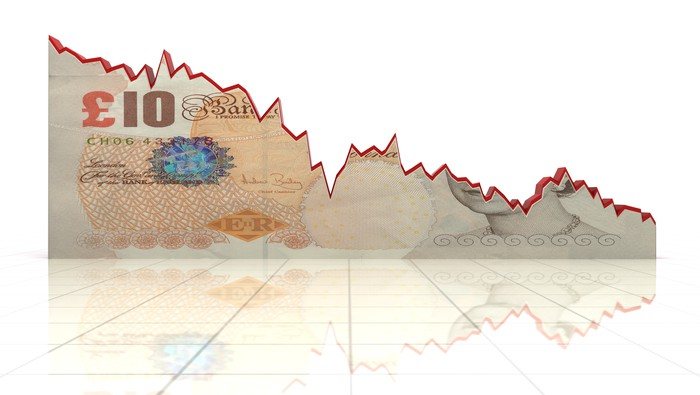Talking Points
- The South African Rand has weakened after President Jacob Zuma’s opponents failed to win another vote of no-confidence in him.
- That weakness will likely continue as political risk remains a dominant market factor.
Check out our new Trading Guides: they’re free and have been updated for the third quarter of 2017
South African President Jacob Zuma survived yet another motion of no-confidence in him in Parliament Tuesday, weakening the South African Rand, which had earlier strengthened on news that the ballot would be held in secret, increasing the chances of him being ousted.
Now, the currency will likely fall further as attention remains focused on alleged corruption, the country’s weak economy and manoeuvring to succeed him as leader of the ruling African National Congress, probably in December.
Chart: USD/ZAR One-Hour Timeframe (August 2017)

Political risk remains the dominant factor, with Deputy President Cyril Ramaphosa expected to challenge Nkosazana Dlamini-Zuma – Jacob Zuma’s ex-wife – for the ANC leadership at December’s elective conference. Whoever wins will likely replace Zuma as President in 2019.
This would follow a turbulent period marred by the sacking of Finance Minister Pravin Gordhan in March and political attacks on the Reserve Bank of South Africa by senior members of the ANC said to be aligned with Zuma.
The firing of Gordhan led both Standard & Poor’s and Fitch to lower South Africa’s credit rating to below investment grade, or “junk”, status in April, with Moody’s downgrading its rating in June but keeping it at investment grade, albeit with a negative outlook.
As for the economy, South Africa fell into recession for the first time since 2009 when GDP contracted for the second straight quarter in the first three months of this year. Against this background, the Rand seems destined to weaken further, particularly if worries over the central bank’s independence grow and/or Moody’s decides to follow its rivals by downgrading the country’s credit rating to junk.
--- Written by Martin Essex, Analyst and Editor
To contact Martin, email him at martin.essex@ig.com
Follow Martin on Twitter @MartinSEssex
For help to trade profitably, check out the IG Client Sentiment data
And you can learn more by listening to our regular trading webinars; here’s a list of what’s coming up







